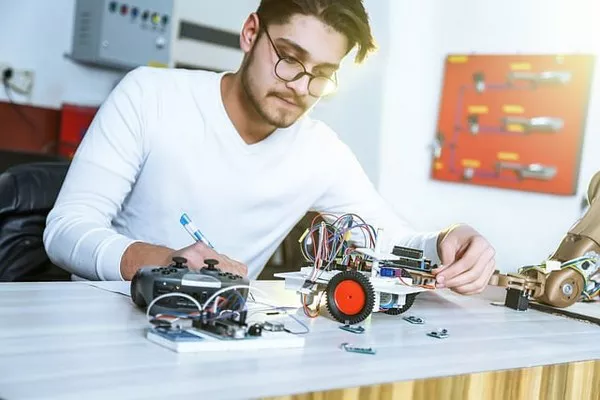In the modern world of industrial automation and process control, the crucial role of an Instrumentation and Control Engineer cannot be overstated. These professionals are at the forefront of ensuring the seamless functioning of intricate systems, enabling industries to achieve optimal efficiency, safety, and productivity. Their expertise lies in designing, developing, and maintaining instruments and control systems that monitor and regulate various industrial processes. In this article, we will delve into the multifaceted responsibilities of an Instrumentation and Control Engineer, shedding light on the significance of their work across different sectors.
Understanding the Role
An Instrumentation and Control Engineer specializes in the application of engineering principles and advanced technologies to manage, optimize, and control industrial processes. They work across diverse industries such as oil and gas, power generation, manufacturing, pharmaceuticals, and chemical processing, among others. The primary objective of these professionals is to create and implement systems that measure, record, and control critical process variables.
Design and Development
The first step in an Instrumentation and Control Engineer’s journey involves the design and development of control systems. This process entails the selection and integration of sensors, transmitters, controllers, and actuators that monitor and manipulate the process parameters. They carefully analyze the system’s requirements, taking into account factors like precision, response time, and environmental conditions to choose the most suitable instrumentation.
The engineers are responsible for configuring Programmable Logic Controllers (PLCs), Distributed Control Systems (DCS), and Supervisory Control and Data Acquisition (SCADA) systems. These automated control systems enable real-time monitoring and control, minimizing human intervention and enhancing process accuracy.
Instrument Calibration and Maintenance
Instrumentation and Control Engineers play a critical role in ensuring the accuracy and reliability of the instruments. Calibration is a meticulous process that involves comparing the instrument’s output against a known standard. Regular calibration is essential to maintain the integrity of the measurement data and guarantee that the control system operates optimally.
Furthermore, these engineers are responsible for the maintenance of control systems and instruments. They troubleshoot issues, perform preventive maintenance, and conduct system upgrades to keep the processes running efficiently.
Process Optimization
Process optimization is a core aspect of an Instrumentation and Control Engineer’s responsibilities. By analyzing process data and identifying inefficiencies, these engineers devise strategies to enhance the overall productivity of the system. This involves fine-tuning control parameters, implementing advanced control algorithms, and identifying opportunities for automation.
Process optimization not only improves productivity but also reduces energy consumption, material wastage, and environmental impact, aligning industries with sustainable practices.
Safety and Risk Mitigation
Industrial processes can be inherently hazardous, and safety is of paramount importance. Instrumentation and Control Engineers actively work on implementing safety systems that prevent accidents and protect both personnel and equipment. They design safety interlocks, emergency shutdown systems, and critical alarms to alert operators of potential issues.
Moreover, these engineers carry out risk assessments to identify potential hazards and develop strategies to mitigate them. This proactive approach ensures that the systems comply with industry regulations and safety standards.
Integration of New Technologies
As technology continues to evolve, Instrumentation and Control Engineers must stay abreast of the latest advancements. They assess emerging technologies and evaluate their potential benefits for the industry they serve. Integrating new technologies, such as artificial intelligence, machine learning, and Industrial Internet of Things (IIoT), empowers engineers to create more sophisticated and autonomous control systems.
Collaboration with Multidisciplinary Teams
Instrumentation and Control Engineers often work in collaboration with multidisciplinary teams, including process engineers, electrical engineers, and mechanical engineers. Effective communication and teamwork are essential in ensuring successful project outcomes. These professionals must articulate their ideas clearly, adapt to different perspectives, and collectively find solutions to complex challenges.
Conclusion
In conclusion, the role of an Instrumentation and Control Engineer is diverse and crucial in modern industrial processes. Their expertise in designing, developing, and maintaining control systems ensures that industries operate efficiently, safely, and sustainably. From concept to implementation, these professionals navigate complex systems with precision and a commitment to excellence. The future will undoubtedly present new challenges and opportunities, and Instrumentation and Control Engineers will continue to be at the forefront of driving innovation and progress in various sectors, paving the way for a more automated and optimized industrial landscape.

